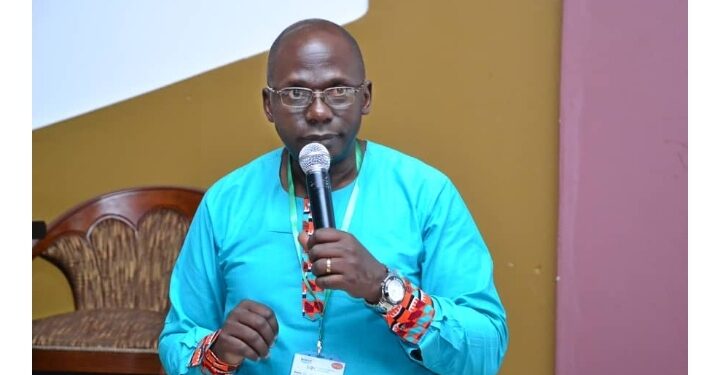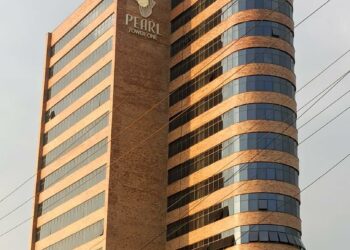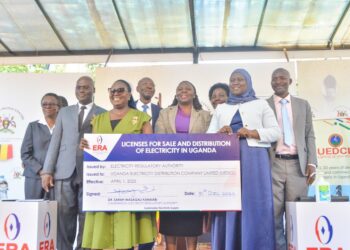Charles Nsubuga is a passionate entrepreneur who worked his way up from being a construction worker and war refugee to owning a food processing company in Uganda. And the European Fund for Sustainable Development helped Charles at a crucial point along the way.
Charles’s challenge: improving people’s nutrition after years of conflict
Charles was 16 years old when he left school and started working at a construction site in his native Uganda. One year later, the Uganda-Tanzania war began. In 1981, Charles was forced to flee to Kenya, where he did some lumbering for survival.
Five years later, Charles returned to Uganda. He was determined to forge a better future for himself and his family. Within a year, he had secured support from 20 shareholders and set up his own food processing company, Serve to Save Company (SESACO), with his wife Juliet Babirye.
But SESACO’s investors were less convinced than Charles and his wife about the potential size of the market. They withdrew their support and for the next 14 years the company grew, but only slowly.
Helping Charles expand his business and create jobs
Then in 2017, Charles’s fortunes turned. He managed to secure financing from an EU-backed blending project called Yield Uganda Investment Fund. The EU contributed €10 million to this project, which invests in small and growing farming and food businesses in Uganda.
By doing so, the EU covered a part of the project’s costs with grants. These were then combined with loans and other kinds of financing from development banks and private investors (a process known as ‘blending’). The EU took more risks than other investors, which helped attract much more investment than would have happened otherwise.
As a result, the EU’s investment generated another €10 million in capital, with three more investors joining the Yield Fund. To date, the Yield Fund has provided affordable loans of almost €6 million to eight small businesses like Charles’s, creating hundreds of jobs.
The project’s results: supporting local farmers and entrepreneurs like Charles
Yield Uganda’s investment meant that Charles’s company SESACO could buy new equipment. This in turn allowed it to produce more, acquire the Quality Mark of Uganda’s National Bureau of Standards, and reach new markets.
“Since Yield Uganda’s investment, we have seen critical changes in the business,” Charles says.
The surrounding community has benefited, too. The company employs 44 people and plans to expand to 180 employees by 2023. SESACO is a reliable buyer for more than 2 000 farmers, up from 200 in 2017, who supply their quality raw materials to the company.
Overall, 10 000 local farmers are set to have agreements with SESACO in the next few years.
Charles adds: “Thanks to the products which SESACO sells, government revenues will rise, and people’s nutrition will improve.”
Two thirds of Uganda’s population work in agriculture, so with blending projects like the Yield Uganda Fund, the EU is helping to raise people’s living standards across the country.
Charles’s business in figures
44 Number of current employees
180 Target employees by 2023
10000 Number of local farmers set to sign agreements with SESACO in the coming years
The story continues
Today, Charles faces new challenges. He needs to boost sales and is looking to find more equity investors – individuals or companies who provide financing in return for a share in the company.
Charles will then be able to secure further working capital, i.e. money available to a company for its day-to-day operations. With that, he can build a factory, scale up production and increase famers’ and his employees’ incomes.
All in all, Charles and Juliet are now happy. After several years, they managed to fully recover all their family land titles which they had used as security, and with their company, they contribute to making their country a better place to live in.
“Working with the Yield Fund fully paid off,” Charles concludes.
Do you have a story in your community or an opinion to share with us: Email us at editorial@watchdoguganda.com













